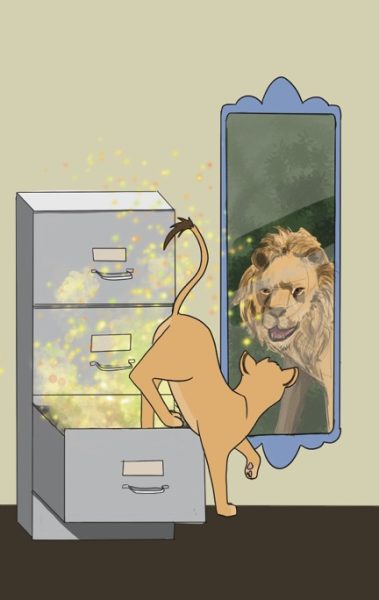Q&A with Dr. Becky Avila ’09
May 3, 2019
The annual Celebration of Community Engagement Dinner, hosted by the Student Engagement Center (SEC), took place on Tuesday, Apr. 30 in honor of Whitman students who participated in SEC-funded programs, such as internships, fellowships and community service. Dr. Becky Avila ‘09 attended this year’s dinner as the keynote speaker — Avila currently works at the non-profit organization Safe Place for Youth in Los Angeles as the Development and Communications Manager.
Q: How did you get involved in community service and/or nonprofit work?
A: I’ve always been involved in community service, from when I was in high school to when I was at Whitman, I think it just became more refined as I discovered my particular passion… I just really liked working with people to make sure that people felt like they mattered. And I think that has a lot to do with my own background of coming from a low-income neighborhood and feeling really overlooked. Throughout that journey I had a lot of mentors and people that took the time to let me know that I was valued and that I mattered and so I really wanted to pay that forward, and so community service just seemed like a natural way to do that.
Q: What are your top career goals and/or focuses?
A: With Safe Place for Youth I’m in fundraising and development, which has been a really wonderful opportunity to enact my writing skills and strengths of public and in-person speaking… I have found that I’m able to wield the most power with my penmanship and being able to write in local newspapers or talk about and make presentations about gentrification and displacement in my research. I do want to stay in fundraising, I basically get to communicate stories and then ask people for money at the end of it, which maybe doesn’t sound so glamorous, but it really is storytelling, and when you really believe in what you’re selling, it doesn’t seem as daunting.… Being able to break it down and find creative ways to communicate stories that need to be told, that’s been really fun, and I don’t think I knew that that was a career choice… It’s about blending my two passions of continued learning and research and supporting people on the ground with what that research and communications can do.
Q: What is your favorite thing about your job?
A: That it’s something different everyday. I never write the same story twice. So getting to think creatively about, okay, how do I want to talk about why someone should become involved in the solution to ending youth homelessness. There are many reasons why someone should do that, and I get to think about how I want to craft that message, and I think that’s really powerful. I think I have a big platform to speak for those who cannot speak for themselves because of the ways they’ve been silenced, not because they can’t speak for themselves but just because sometimes they don’t have the audience to listen.
Q: You have a significant professional history in management and organizing. What is the hardest part about both of those things, and what do you think makes a good leader/organizer?
A: Managing people and managing projects are two different things, and they require different skills. Managing people can be tricky because you want to be encouraging but you also want to be firm. Finding your authoritative voice can take some practice, and you don’t always have it right away, whether you’re trying to manage a classroom space with 25 children, or trying to rally a team of people behind a mission. Both of those require a lot of energy, so I think the challenging part is finding ways to keep yourself motivated and energized so that you can ultimately lead by example. I think a good manager leads by example… When you do that, only then can you put those same expectations on your team. So therefore it’s challenging to try and be the best version of yourself all the time, but you really want to try and reflect the skills that you’re expecting of [other] people.
Q: How has your experience as a first-generation woman of color affected your professional and personal trajectory?
A: I think it’s played a huge role in all the opportunities I’ve been afforded, and only because I’ve been such an outspoken advocate and really amplified my personal journey, not being so ashamed of the journey… I think being able to take what is ultimately a challenge and demonstrating the resilience that emerges from that challenge [is important]… My own family experienced homelessness… I had homeless uncles, I definitely had family members who were addicted to drugs, so I’ve seen that part of the city and the lifestyle and [have been] able to bring that into [my nonprofit work]. The nonprofit sector is still primarily white, as far as who your workers and who your donors are, and they tend to mainly benefit people of color. And that can be really daunting and isolating for your clients, if the people helping you all the time don’t look like you… So I never shy away from being a low-income person of color and being first-generation because I think people want to hear that it’s possible.
Q: What advice do you have for current Whitman students who are worried about finding their passion?
A: Take your time. It does not happen overnight. It is a long and winding road and that’s okay… I wouldn’t criticize the journey so much, really embrace the journey, because it seems long but it really does pay off… Some real, real advice: polish up your LinkedIn profile, it’s your online business card… Don’t shut anyone down, only elevate people who are trying to make the world better. Personal time is hustle time, and that seems daunting, but when you love what you do, that hustle time just seems like an extension of yourself. Don’t be afraid to step away from your passion when you’re exhausted, because it is exhausting work, but if you find your way back to it that’s only a testament to how much it was a part of you always.






